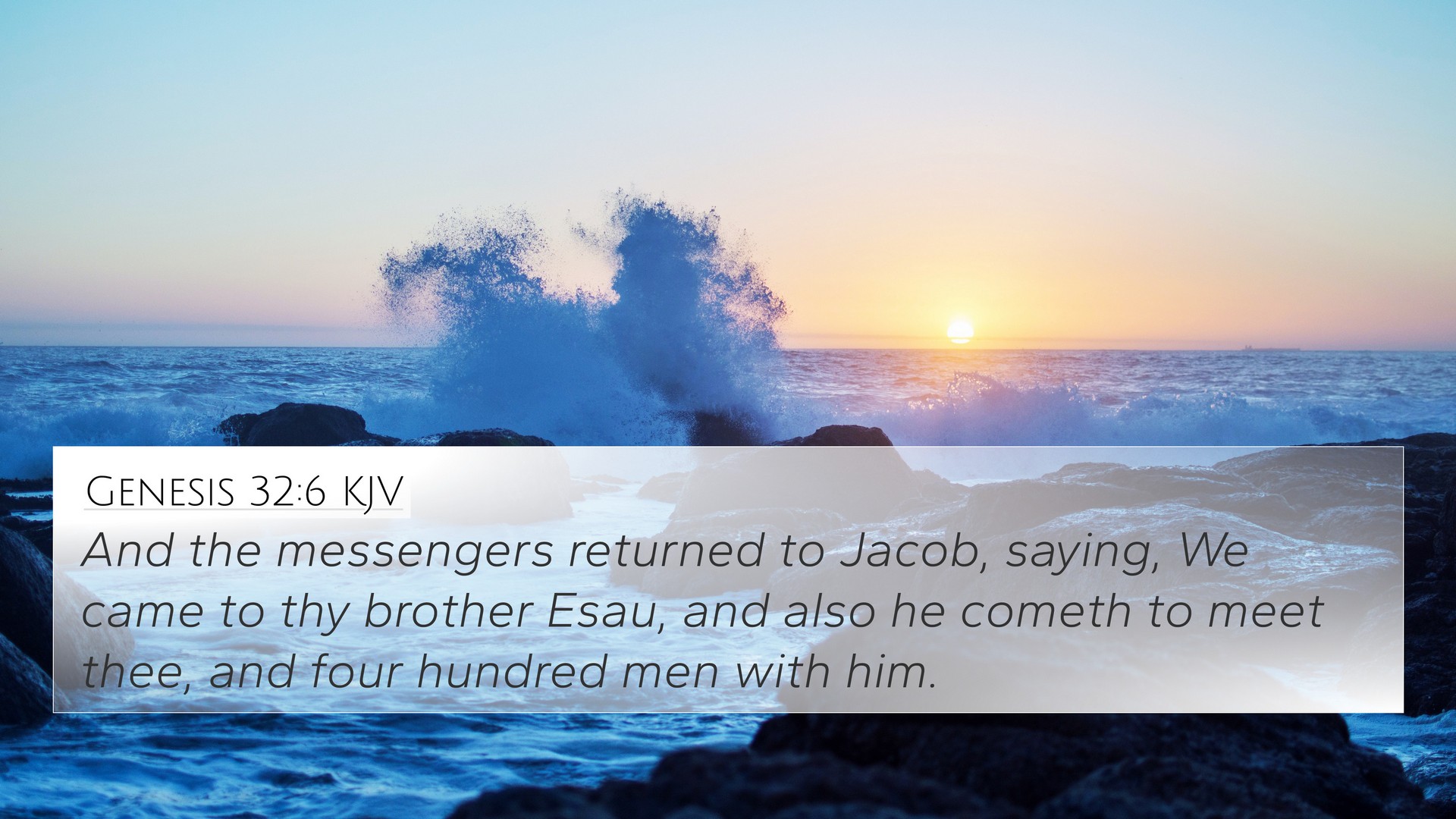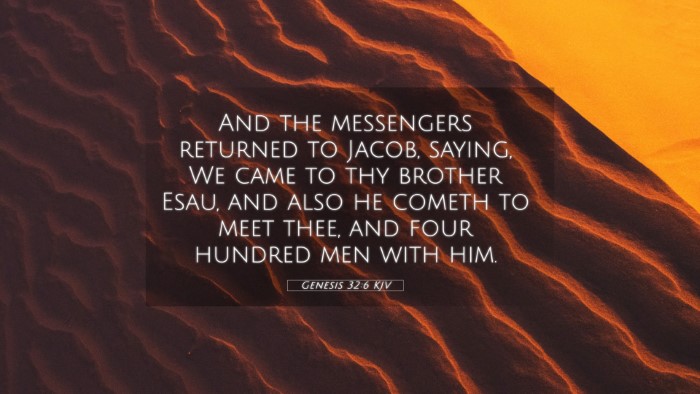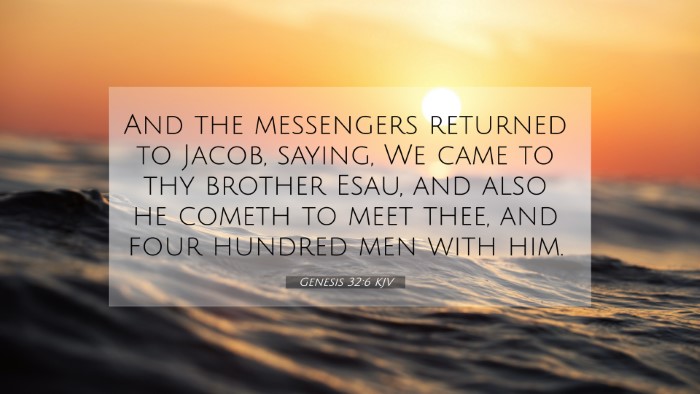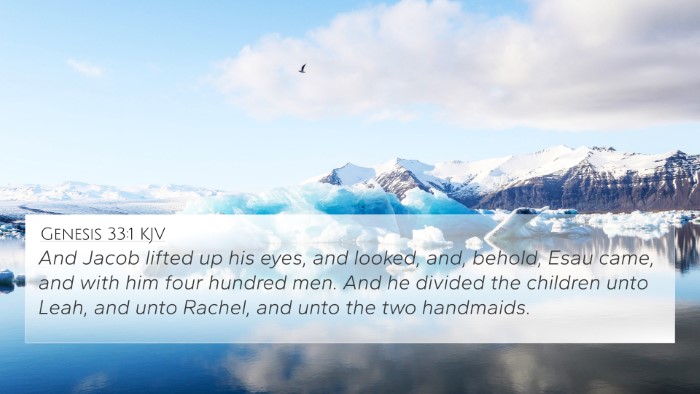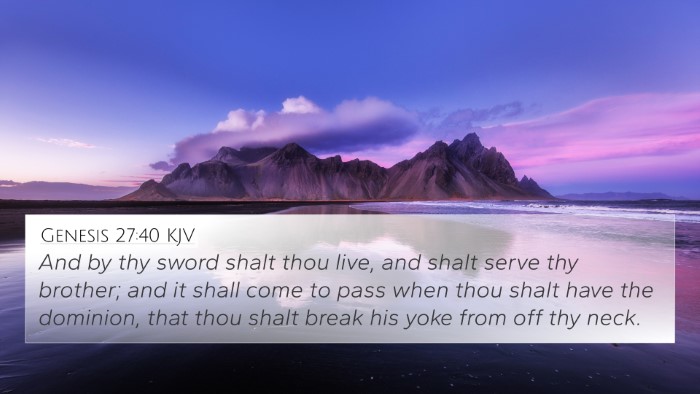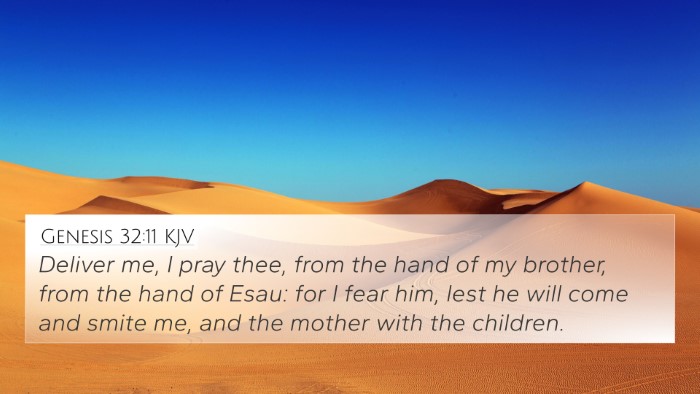Understanding Genesis 32:6
Genesis 32:6 reads: “And the messengers returned to Jacob, saying, We came to thy brother Esau, and also he cometh to meet thee, and four hundred men with him.” This pivotal moment in the biblical narrative highlights Jacob’s impending encounter with his estranged brother Esau, filled with anxiety and expectation. The following commentary insights explore the theological and practical significances of this verse.
Summary of Insights
This verse brings forth several layers of meaning that can be interpreted through the lens of various public domain commentaries. Here are the themes that emerge from the insights of renowned bible scholars:
- Fear and Anxious Anticipation: Jacob’s fear of Esau represents human emotional responses when faced with potentially hostile situations. Matthew Henry notes Jacob's trepidation and his past wrongdoings, highlighting the tension in their relationship.
- God's Providence: Albert Barnes emphasizes the interplay between human actions and divine providence. This verse illustrates how Jacob’s predicament ultimately serves a greater purpose in God’s plan for reconciliation.
- The Role of Messengers: Adam Clarke points out the importance of the messengers in conveying critical information. They act as intermediaries, reflecting the necessity of communication in relationships.
- Preparation for Encounter: Jacob prepares not only materially but spiritually, showing his growth and maturity through prayer and reflection. This indicates the importance of spiritual readiness before confronting challenging situations.
- The Collective Response: The mention of “four hundred men” underscores the seriousness of Esau's approach. Henry reflects on how the army-like retinue may evoke fear, but can also mark a new chapter of reconciliation.
Bible Cross-References
To enhance understanding, it is crucial to explore the connections between Genesis 32:6 and other scriptures:
- Genesis 27:41: This verse details Esau's anger toward Jacob for the blessing he received, setting the historical context for their conflict.
- Genesis 33:1-4: The resolution of their conflict is detailed in this passage, illustrating Esau’s forgiveness and the reunification of the brothers.
- Proverbs 16:7: "When a man's ways please the Lord, he maketh even his enemies to be at peace with him," emphasizing divine favor influencing human relationships.
- Romans 12:18: This verse conveys the principle of living peaceably with all, a connection to Jacob’s desire to make amends with Esau.
- Matthew 5:24: Jesus teaches about reconciliation with brothers before offering gifts to God, reflecting the importance of resolving conflicts.
- 2 Corinthians 5:18: This highlights the ministry of reconciliation, relevant to Jacob and Esau’s restoration.
- Philippians 4:6: The call to not be anxious in any situation aligns with Jacob's moment of fear as he faces Esau.
Thematic Connections
Genesis 32:6 sets a stage that is rich with thematic Bible verse connections. The narrative reflects:
- Reconciliation: Viewed in the larger biblical context, the theme of reconciliation resonates through both the Old and New Testaments, portraying God’s desire for restored relationships.
- Fear and Faith: Jacob's experience mirrors the believer's journey between anxiety and trust in God’s plans, a frequent biblical motif that can be found throughout the scriptures.
- The Mercy of God: Jacob’s plight is a testament to the mercy and grace of God, which is consistently highlighted in numerous scripture passages, emphasizing that every individual can seek redemption.
Tools for Further Bible Study
To fully grasp the depths of Genesis 32:6, utilizing various Bible cross-reference tools can aid researchers:
- Using a bible concordance to find related verses by keywords.
- Exploring a bible cross-reference guide for thematic studies.
- Engaging in a cross-reference Bible study can involve thematic analysis.
- Employing a Bible reference resource to compare related passages in different translations.
